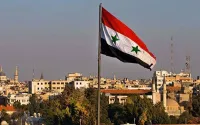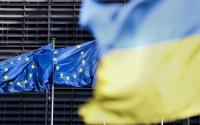19 November 2007
Intergovernmental Panel on Climate Change (IPCC) — the United Nations body that last month won the Nobel Prize for its efforts to boost understanding of climate change — has raised the tone of urgency with its latest report.
Its new synthesis report, which aims to give policy-makers a concise summary of the findings of all three of its detailed research summaries released earlier this year, is notable for containing more pressing language relative to earlier output.
Featured in the report is a discussion of "dangerous anthropogenic interference with the climate system" — a phrase that was absent from previous IPCC publications because of objections from some political delegates to the panel's conferences.
"Delayed emission reductions significantly constrain the opportunities… and increase the risk of more severe climate change impacts," the report says. (See 'Five messages from the IPCC')
Although the IPCC declares that its job is merely to describe the science of climate change, and not to advocate policies aimed at tackling it, the new report is likely to be viewed as a call to arms ahead of important negotiations on a potential successor to the Kyoto Protocol.
Signatories to the Kyoto treaty are meeting next month in Bali, Indonesia, to discuss a follow-up pact to the carbon-cutting agreement, which remains the most comprehensive existing plan for fighting climate change.
Going up
The new report condenses the findings of the three longer reports, and is published as the IPCC's Fourth Assessment Report, entitled 'Climate Change 2007'. Broadly, the three publications discuss the scale of climate change, its likely effects on the world, and the ways and means in which it can be tackled.
The new report, released in Valencia, Spain, by UN secretary-general Ban Ki-moon, confirms again that it is at least 90% certain that rising temperatures are caused by mankind's activities. It lays out possible strategies for avoiding world temperature rises.
Successfully limiting the impact of such climate change will involve 'mitigation' strategies, such as emissions trading, and 'adaptation', such as installing improved flood defences, the report says.
Worst case scenario
Although the report is limited only to material within the three previous publications, the tone has toughened, perhaps because research published in the interim has suggested that world greenhouse emissions are matching or even exceeding the gloomiest predictions of the IPCC's previous output.
Recent research, for example, shows that the 'carbon intensity' of the global economy — the amount of greenhouse gas emitted per unit of economic productivity — is climbing, mostly as a result of the coal-dependence of China and other emerging nations (see Greenhouse-gas levels accelerating). Previously, economic analysts had not expected such a trend.
"The predictions for any given emissions scenario are likely to be underestimates — the most benign view — of future change," says Bob Spicer, an earth scientist at the UK's Open University. "Those areas undergoing most rapid change now (the Arctic and continental interiors) are likely to be where the biggest errors in the predictions lie."
Hans Verolme, head of the conservation group WWF's Global Climate Change programme in Washington DC, points to the existence of a section within the synthesis report called 'reasons for concern', which he says acknowledges the risk of both abrupt climatic shifts and irreversible impacts. Although there is "a little hedging and qualifying going on", he says, the fact that such a statement is in the report is notable.
“The good news is the report also says we have a small window of opportunity to take decisive action,” Verolme says, suggesting that politicians now have all of the evidence and analysis they need to pursue cuts in greenhouse-gas emissions in Bali next month. “The IPCC shows us that those cuts need to be not small, but deep.”
http://www.nature.com/news/2007/071119/full/news.2007.269.html






